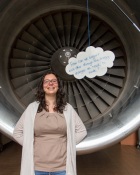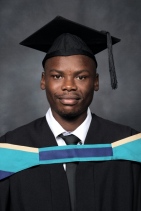Our team involves lots of partners at Universities in the UK and South Africa, as well as local partners. Here’s a round up of who we are:
Principal Investigator: Dr Anne van Loon, University of Birmingham
 I am a hydrologist that has been researching drought around the world for more than 10 years. In my PhD and postdoctoral projects, both at Wageningen University in the Netherlands, I worked on understanding the propagation from meteorological to hydrological drought in different climates and catchments. Since two years I work as a lecturer in Water Science at the University of Birmingham on a range of drought-related projects. Currently, my main focus is on the feedbacks between drought and society, by investigating the influence of human activities on drought and the response of society to drought impacts. Before going into the drought world I worked for a consultancy company on projects about water management in Kenya and Turkey, for an NGO investigating the effect of forest plantations on soil and water in Ecuador, and on an MSc project on mangrove restoration in Vietnam. I have a very broad interest and always try to combine sound science (by using robust data-analysis and modelling approaches) with societal relevance (by focussing on local people’s needs).
I am a hydrologist that has been researching drought around the world for more than 10 years. In my PhD and postdoctoral projects, both at Wageningen University in the Netherlands, I worked on understanding the propagation from meteorological to hydrological drought in different climates and catchments. Since two years I work as a lecturer in Water Science at the University of Birmingham on a range of drought-related projects. Currently, my main focus is on the feedbacks between drought and society, by investigating the influence of human activities on drought and the response of society to drought impacts. Before going into the drought world I worked for a consultancy company on projects about water management in Kenya and Turkey, for an NGO investigating the effect of forest plantations on soil and water in Ecuador, and on an MSc project on mangrove restoration in Vietnam. I have a very broad interest and always try to combine sound science (by using robust data-analysis and modelling approaches) with societal relevance (by focussing on local people’s needs).
Co-Investigator: Dr Rosie Day, University of Birmingham
Find Rosie’s profile here.
Co-Investigator: Prof Lindsey McEwen, University of the West of England
Lindsey McEwen is Professor of Environmental Management and Director of the Centre for Floods, Communities and Resilience (CFCR), University of the West of England, Bristol, UK (www.uwe.ac.uk/research/cfcr). Her research interests originate in the natural sciences are now involve interdisciplinary working. Over 30 years, her research interests include: flood/drought risk management, water risk education, science communication and community-based research/learning. Lindsey led the ESRC funded Sustainable Flood Memories project (2011-2015; esrcfloodmemories.wordpress.com) which researched the creative, mediated and archival methods used by communities prone to environmental crises to share local knowledge and promote resilience. She was co-investigator in the EPSRC SESAME project (2012-2016; http://www.sesame.uk.com) which explored how small businesses can become more flood resilient through longer-term adaptation and behaviour change (see e-tool: floodresilientbusiness.co.uk). Lindsey is also co-investigator within the AHRC Towards Hydrocitizenship project which is exploring the concept, process and practice of citizenship through a water lens, working with a co-productive model within interdisciplinary arts and humanities research. Lindsey is currently leading the NERC DRY project (Drought Risk and You; 2014-2018; dryproject.co.uk), which is evaluating how science-narrative and scenario-ing approaches can be used in developing an evidence-base for UK drought risk decision-making. This involves multi-stakeholder engagement with the flood-drought continuum, as key concept in catchment thinking and risk management. She is contributing learning from DRY in the development and application of science-narrative methodologies in a developing world context within the CreativeDroughts project.
Co-Investigator: Prof Lyla Mehta, Institute of Development Studies
Find Lyla’s profile here.
Co-Investigator: Prof Coleen Vogel, University of Wiswatersrand
Find Coleen’s ResearchGate profile here.
Co-Investigator: Dr Stephen Birkinshaw, Newcastle University
 I am a hydrologist with particular expertise in the computer modelling of river basins. I graduated with a mathematics degree from Nottingham University in 1990 and then completed both an MSc and a PhD at Newcastle University. The MSc was in Hydrology in 1993 and a PhD in 1997 was on a nitrate transport component for the Shetran (a physically-based spatially-distributed model for water flow, sediment and solute transport in river catchments). After my PhD I continued as a post-doc researcher at Newcastle University working in a variety of areas such as: cold region processes, wetlands, sediment transport, surface/groundwater interactions, desertification, subsurface flow pathways, forestry effects on flooding and the use of satellite data in hydrology. I have published more than 20 journal articles with 15 as the first author. I am in charge of maintaining and developing the code and providing support for users of the Shetran model. I now live in the Lake District where I enjoy running in the fells.
I am a hydrologist with particular expertise in the computer modelling of river basins. I graduated with a mathematics degree from Nottingham University in 1990 and then completed both an MSc and a PhD at Newcastle University. The MSc was in Hydrology in 1993 and a PhD in 1997 was on a nitrate transport component for the Shetran (a physically-based spatially-distributed model for water flow, sediment and solute transport in river catchments). After my PhD I continued as a post-doc researcher at Newcastle University working in a variety of areas such as: cold region processes, wetlands, sediment transport, surface/groundwater interactions, desertification, subsurface flow pathways, forestry effects on flooding and the use of satellite data in hydrology. I have published more than 20 journal articles with 15 as the first author. I am in charge of maintaining and developing the code and providing support for users of the Shetran model. I now live in the Lake District where I enjoy running in the fells.
Researcher-Co-investigator: Dr Sally Rangecroft, University of Birmingham

I am a physical geographer with an interdisciplinary background. Born in the UK, I have moved around the country gaining my academic qualifications and exploring a variety of environmental topics (e.g. biochar, water resources in the Bolivian Andes, rock glaciers, climate change). I studied my PhD with the University of Exeter down in Cornwall (near the best British beaches, so I became a surfer) but I spent multiple weeks out in Bolivia for fieldwork. I was lucky enough to experience life out in La Paz (~4,000 m a.s.l.) and work directly with a Bolivian NGO, Agua Sustainable, and Oxfam. Upon finishing my PhD, I moved to Birmingham (June 2015) to start my post-doc. I am now a work block leader (learning from case studies) in the Panta Rhei working group “Droughts in the Anthropocene” and I am the module leader of a module on the River Environments and their Management Masters programme in Birmingham.
Researcher-Co-investigator: Dr Mel Rohse, University of Birmingham

I’m originally from France, but I’ve lived in the UK since September 2007 when I came over to do an MA in conflict resolution at the University of Bradford. I stayed in Bradford to do a PhD that looked at the dynamics of individual and collective storytelling in a contested urban space. I started working as a postdoc at the University of Birmingham in September 2014 on an AHRC funded project called Stories of Change: exploring energy and community in the past, present and future. I was part of the Everyday Lives work package, which focused on the role of energy in communities in South Wales. During my 2 years in that role, the team did some fairly straightforward oral history interviews but we also worked closely with creative practitioners and did some creative experiments on how to research energy in communities. One of those was a ‘pop up’ story studio – we took over a building that used to be a library for 2 weeks in the summer of 2015 and turned it into a space that was part exhibition and part interactive, which invited people’s stories about energy.
Researcher-Co-investigator: Dr Eugine Makaya, National University of Science and Technology, Bulawayo, Zimbabwe
 I have lived in Zimbabwe for the greater part of my life, though with frequent travels throughout southern Africa. I have done research and consultancy work in many southern African countries on water related issues; working with Universities, NGOs and private companies. I am a water resources expert with keen interests in Water Resources Management, Hydrological Modelling, Hydrodynamic Modelling and Water Supply Management. I had a privilege of working as a research fellow in a Volkswagen Foundation funded project on water loss management strategies for developing countries between 2011 and 2013; based at the University of Kassel, Germany. I graduated with a Doctor of Agricultural Sciences with the University of Kassel in 2015. Just after my research fellowship, I had an opportunity to work as an Environmental Systems Engineer with a Botswana based consultancy.
I have lived in Zimbabwe for the greater part of my life, though with frequent travels throughout southern Africa. I have done research and consultancy work in many southern African countries on water related issues; working with Universities, NGOs and private companies. I am a water resources expert with keen interests in Water Resources Management, Hydrological Modelling, Hydrodynamic Modelling and Water Supply Management. I had a privilege of working as a research fellow in a Volkswagen Foundation funded project on water loss management strategies for developing countries between 2011 and 2013; based at the University of Kassel, Germany. I graduated with a Doctor of Agricultural Sciences with the University of Kassel in 2015. Just after my research fellowship, I had an opportunity to work as an Environmental Systems Engineer with a Botswana based consultancy.
Project partner in South Africa: Prof. Edward Nesamvuni
Details about Edward’s work can be found here.
Mr Livhuwani Ludick Khobo (research assistant)

I was born and raised in Duthuni Village, Thohoyandou, South Africa. I completed my Honours degree in Mining and Environmental Geology (MEG) at the University of Venda, in the Faculty of Environmental Sciences. My research and mini-dissertation was focusing on the “Petrographic study of Rock Samples within the Artonvilla Copper-sulphide deposit in Musina area, Limpopo Province, South Africa”. I have participated in tutoring program at the University of Venda under Entropic Tutors Company. I am involved in this project through SASSETA Internship program under supervision of Prof. Edward Nesamvuni. I am interested in undertaking project on water quality for Masters’ studies.
Miss Tshimangadzo Mandoma (research assistant)
Miss Ndivhuwo Makhalimela (research assistant)
Mr Khutadzo Ndwambi (research assistant)
NGO partner: Oxfam
Details here.
NGO partner: UNESCO-IHE
Details here.